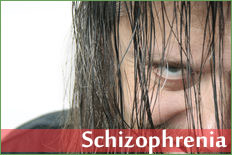Diagnostic criteria (DSM-IV-TR)
- avoids occupational activities that involve significant interpersonal contact, because of fears of criticism, disapproval, or rejection
- is unwilling to get involved with people unless certain of being liked
- shows restraint within intimate relationships because of the fear of being shamed or ridiculed
- is preoccupied with being criticized or rejected in social situations
- is inhibited in new interpersonal situations because of feelings of inadequacy
- views self as socially inept, personally unappealing, or inferior to others
- is unusually reluctant to take personal risks or to engage in any new activities because they may prove embarrassing
American Psychiatric Association. (1994). Diagnostic and statistical manual of mental disorders, fourth edition. Washington, DC: American Psychiatric Association.
Differential Diagnosis
In terms of differential diagnosis it is important to differentiate the avoidant personality disorder from Schizoid Personality Disorder, although that differential may be difficult. Essentially schizoids claim not to want any relationships and avoidant people claim to want them but to be frightened of them. Another important differential is between avoidant personality disorder and phobias of all kinds, because people who are agoraphobic, people who have simple phobias, people with social phobias, will have the same avoidant mechanisms. However, often these mechanisms are quite isolated. These are people who don't need the same kind of uncritical acceptance. These are not people who are as sensitive to perceived criticism as people with APD.
- Panic Disorder (Anxiety Disorders)
- Separation Anxiety and School Refusal (Anxiety Disorders)
- Social Phobia and Selective Mutism (Anxiety Disorders)
- Hearing Impairment
- Depression (Mood Disorders)
- Pervasive Developmental Disorder
- Pervasive Developmental Disorder: Autism
- Panic disorder with agoraphobia
- Dependent personality disorder
- Schizoid personality disorder
- Communication disorders
References
- Alden L: Short-term structured treatment for avoidant personality disorder. J Consult Clin Psychol 56:756-764, 1989
- Alden LE, Capreol MJ: Avoidant personality disorder: interpersonal problems as predictors of treatment response. Behavior Therapy 24:357-376, 1993
- Allgulander C: Paroxetine in social anxiety disorder: a randomized, placebo-controlled study. Acta Psychiatr Scand 100:193-198, 1999
- Alnaes R, Torgersen S: Personality and personality disorders predict development and relapses of major depression. Acta Psychiatr Scand 95:336-342, 1997
- Alpert JE, Uebelacker LA, McLean NE, et al: Social phobia, avoidant personality disorder and atypical depression: co-occurrence and clinical implications. Psychol Med 27:627-633, 1997
- Altamura AC, Pioli R, Vitto M, et al: Venlafaxine in social phobia: a study in selective serotonin reuptake inhibitor non-responders. Int Clin Psychopharmacol 14:239-245, 1999
- American Psychiatric Association: Diagnostic and Statistical Manual of Mental Disorders, 3rd Edition. Washington, DC, American Psychiatric Association, 1980
- American Psychiatric Association: Diagnostic and Statistical Manual of Mental Disorders, 3rd Edition, Revised. Washington, DC, American Psychiatric Association, 1987
- American Psychiatric Association: Diagnostic and Statistical Manual of Mental Disorders, 4th Edition. Washington, DC, American Psychiatric Association, 1994
- Baillie AJ, Lampe LA: Avoidant personality disorder: empirical support for DSM-IV revisions. J Personal Disord 12:23-30, 1998
- Baldwin D, Bobes J, Stein DJ, et al: Paroxetine in social phobia/social anxiety disorder. Br J Psychiatry 175:120-126, 1999
- Barber JP, Muenz LR: The role of avoidance and obsessiveness in matching patients to cognitive and interpersonal psychotherapy: empirical findings from the Treatment for Depression Collaborative Research Program. J Consult Clin Psychol 64:951-958, 1996
- Barber JP, Morse JQ, Krakauer ID, et al: Change in obsessive-compulsive and avoidant personality disorders following time-limited supportive-expressive therapy. Psychotherapy 34:133-143, 1997
- Beck AT, Freeman A: Cognitive Therapy of Personality Disorders. New York, Guilford, 1990
- Blomhoff S, Huag TT, Humble M, et al: Treatment of generalized social phobia. Paper presented at the annual meeting of the American Psychiatric Association, Washington, DC, May 1999
- Brooks RB, Baltazar PL, Munjack DJ: Co-occurrence of personality disorders with panic disorder, social phobia, and generalized anxiety disorder: a review of the literature. J Anxiety Disord 3:259-285, 1989
- Brown EJ, Heimberg RG, Juster HR: Social phobia subtype and avoidant personality disorder: effect on severity of social phobia, impairment, and outcome of cognitive-behavioral treatments. Behavior Therapy 26:467-486, 1995
- Cappe RF, Alden LE: A comparison of treatment strategies for clients functionally impaired by extreme shyness and social avoidance. J Consult Clin Psychol 54:796-801, 1986
- Carson R: Self-fulfilling prophecy, maladaptive behavior and psychotherapy, in Handbook of Interpersonal Psychotherapy. Edited by Anchin J, Kiesler D. New York, Pergamon, 1982, pp 64-77
- Cashdan S: Interactional psychotherapy: using the relationship, in Handbook of Interpersonal Psychotherapy. Edited by Anchin J, Kiesler D. New York, Pergamon, 1982, pp 215-226
- Chambless DL, Tran GQ, Glass CR: Predictors of response to cognitive-behavioral group therapy for social phobia. J Anxiety Disord 11:221-240, 1997
- Connor KM, Davidson JRT, Potts NS, et al: Discontinuation of clonazepam in the treatment of social phobia. J Clin Psychopharmacol 18:373-378, 1998
- Davidson JRT, Ford SM, Smith RD, et al: Long-term treatment of social phobia with clonazepam. J Clin Psychiatry 52 (11, suppl):16-20, 1991
- Deltito JA, Stam M: Psychopharmacology treatment of avoidant personality disorder: Compr Psychiatry 30:498-504, 1989
- Emmelkamp PMG, Mersch PP, Vissia E: Social phobia: a comparative evaluation of cognitive and behavioral interventions. Behav Res Ther 23:365-369, 1985
- Fenichel O: The Psychoanalytical Theory of the Neurosis. New York, WW Norton, 1945
- Feske U, Chambless DL: Cognitive behavioral versus exposure only treatment for social phobia: a meta-analysis. Behavior Therapy 26:695-720, 1995
- Feske U, Perry KJ, Chambless DL, et al: Avoidant personality disorder as a predictor for severity and treatment outcome among generalized social phobics. J Personal Disord 10:174-184, 1996
- Gabbard GO: Cluster C personality disorders, in Psychodynamic Psychiatry in Clinical Practice: The DSM-IV Edition. Washington, DC, American Psychiatric Association, 1994, pp 601-608
- Greenberg D, Stravynski A: Social phobia. Br J Psychiatry 143:526-527, 1983
- Heimberg RG: Specific issues in the cognitive-behavioral treatment of social phobia. J Clin Psychiatry 54 (suppl):36-45, 1993
- Heimberg RG: Social phobia, avoidant personality disorder, and the multiaxial conceptualization of interpersonal anxiety, in Key Trends in Cognitive and Behavioral Therapies. Edited by Salkovskis P. Chichester, UK, Wiley, 1996, pp 103-112
- Heimberg RG, Dodge GS, Hope DA, et al: Cognitive behavioral treatment for social phobia: comparison to a credible placebo group. Cognitive Therapy and Research 14:1-23, 1990
- Herbert JD, Hope DA, Bellack AS: Validity of the distinction between generalized social phobia and avoidant personality disorder. J Abnorm Psychol 101:332-339, 1992
- Holt CS, Heimberg RG, Hope DA: Avoidant personality disorders and the generalized subtype of social phobia. J Abnorm Psychol 101:318-325, 1992
- Hope DA, Herbert JD, White C: Diagnostic subtype, avoidant personality disorder, and efficacy of cognitive-behavioral group therapy for social phobia. Cognitive Therapy and Research 19:399-417, 1995
- Horney K: Our Inner Conflicts. New York, WW Norton, 1945
- Horney K: Neurosis and Human Growth. New York, WW Norton, 1950
- Jung CG: Psychological types (1936), in Collected Works of C. G. Jung, Vol 6. Edited by McGuire W. Princeton, NJ, Princeton University Press, 1974, pp 550-553
- Katzelnick DJ, Kobak KA, Greist JH, et al: Sertraline for social phobia: a double-blind, placebo-controlled crossover study. Am J Psychiatry 152:1368-1371, 1995
- Kelsey JE: Venlafaxine in social phobia. Psychopharmacol Bull 31:767-771, 1995
- Kessler RC, McGonagle KA, Zheo S, et al: Lifetime and 12-month prevalence of DSM-III-R psychiatric disorders in the United States: results from the National Comorbidity Survey. Arch Gen Psychiatry 51:8-19, 1994
- Kiesler D: Interpersonal theory for personality and psychotherapy, in Handbook of Interpersonal Psychotherapy. Edited by Anchin J, Kiesler D. New York, Pergamon, 1982, pp 3-24
- Liebowitz MR, Schneier F, Capneas R, et al: Phenelzine vs. atenolol in social phobia, a placebo controlled comparison. Arch Gen Psychiatry 49:290-300, 1992
- Maier W, Lichterman D, Klinger T, et al: Prevalences of personality disorder (DSM-III-R) in the community. J Personal Disord 6:187-196, 1992
- Marzillier JS, Lambert C, Kellett J: A controlled evaluation of systematic desensitization and social skills training for socially inadequate psychiatric patients. Behav Res Ther 14:225-238, 1976
- Mersch PPA, Emmelkamp PMG, Lips C: Social phobia: individual response patterns and the long-term effects of behavioral and cognitive interventions: a follow-up study. Behav Res Ther 29:357-362, 1991
- Millon T (ed): Modern Psychopathology: A Biosocial Approach to Maladaptive Learning and Functioning. Philadelphia, PA, WB Saunders, 1969, pp 231-233
- Millon T: Disorders of Personality: DSM-III, Axis II. New York, Wiley, 1981
- Millon T: Avoidant personality disorder: a brief review of issues and data. J Personal Disord 6:353-362, 1991
- Millon T: Disorders of Personality: DSM-IV and Beyond. New York, Wiley, 1996
- Numberg HG, Martin GA, Pollack S: An empirical method to define personality disorder classification using stepwise logistic regression modeling to develop diagnostic criteria and thresholds. Compr Psychiatry 35:409-419, 1994
- Pande AC, Davidson JR, Jefferson JE, et al: Treatment of social phobia with gabapentin: a placebo-controlled study. J Clin Psychopharmacol 19:341-345, 1999
- Perugi G, Nassini S, Socci C, et al: Avoidant personality in social phobia and panic-agoraphobia disorder: a comparison. J Affect Disord 54:277-282, 1999
- Reich J, Noyes R, Yates W: Alprazolam treatment of avoidant personality traits in social phobic patients. J Clin Psychiatry 50:91-95, 1989
- Rickels K, Schweizer E, Weiss S, et al: Maintenance drug treatment for panic disorder: short and long-term outcome after drug taper. Arch Gen Psychiatry 50:61-68, 1993
- Schneier FR, Chin SJ, Hollander E, et al: Fluoxetine in social phobia (letter). J Clin Psychopharmacol 12:62-63, 1992
- Scholing A, Emmelkamp PMG: Prediction of treatment outcomes in social phobia: a cross-validation. Behav Res Ther 377:659-670, 1999
- Stein MB, Liebowitz MR, Lydiard RB, et al: Paroxetine treatment of generalized social phobia. JAMA 250:708-713, 1998
- Stein MB, Fyer AJ, Davidson JRT: Fluvoxamine in the treatment of social phobia: a double-blind placebo-controlled study. Am J Psychiatry 156:756-760, 1999
- Sternbach H: Fluoxetine treatment of social phobia (letter). J Clin Psychopharmacol 10:230, 1990
- Stravynski A, Marks I, Yule W: Social skills problems in neurotic outpatients: social skills training with and without cognitive modification. Arch Gen Psychiatry 39:1378-1385, 1982
- Taylor S: Meta-analysis of cognitive-behavioral treatment for social phobia. J Behav Ther Exp Psychiatry 27:1-9, 1996
- Tran GQ, Chambless DL: Psychopathology of social phobia: effects of subtype and of avoidant personality disorder. J Affect Disord 9:489-501, 1995
- Turner SM, Biedel DC, Dancu CV, et al: Psychopathology of social phobia and comparison to avoidant personality disorder. J Abnorm Psychol 95:389-394, 1986
- Turner SM, Beidel DC, Townsley RM: Social phobia: a comparison of specific and generalized subtypes and avoidant personality disorder. J Abnorm Psychol 101:326-331, 1992
- Turner SM, Beidel DC, Wolff PL, et al: Clinical features affecting treatment outcome in social phobia. Behav Res Ther 34:795-804, 1996
- Van Ameringen M, Swinson R, Walker JR, et al: A placebo-controlled study of sertraline in generalized social phobia. Paper presented at the 19th National Conference of the Anxiety Disorders Association of America, San Diego, CA, March 25-28, 1999
- Van Vliet IM, Den Boer J, Westenberg HGM: Psychopharmacological treatment of social phobia: a double-blind placebo controlled study with fluvoxamine. Psychopharmacology (Berl) 115:128-134, 1994
- Van Vliet IM, Westenberg HGM, van Megan HTGM: Clinical effects of venlafaxine in social phobia. Paper presented at the 11th Congress of the European College of Neuropsychopharmacology (ECNP), Paris, France, October 31-November 4, 1998
- Versiani M, Nardi AE, Mundim FD, et al: Pharmacotherapy of social phobia: a controlled study with moclobemide and phenelzine. Br J Psychiatry 161:353-360, 1992
- Widiger TA: Generalized social phobia versus avoidant personality disorder: a commentary on three studies. J Abnorm Psychol 101:340-343, 1992
- Winston A, Laikin M, Pollack J, et al: Short-term psychotherapy of personality disorders. Am J Psychiatry 151:190-194, 1994
- World Health Organization: International Classification of Diseases, 10th Revision. Geneva, Switzerland, World Health Organization, 1991
- Zimmerman M, Coryell WH: Diagnosing personality disorder in the community. Arch Gen Psychiatry 47:527-531, 1990


